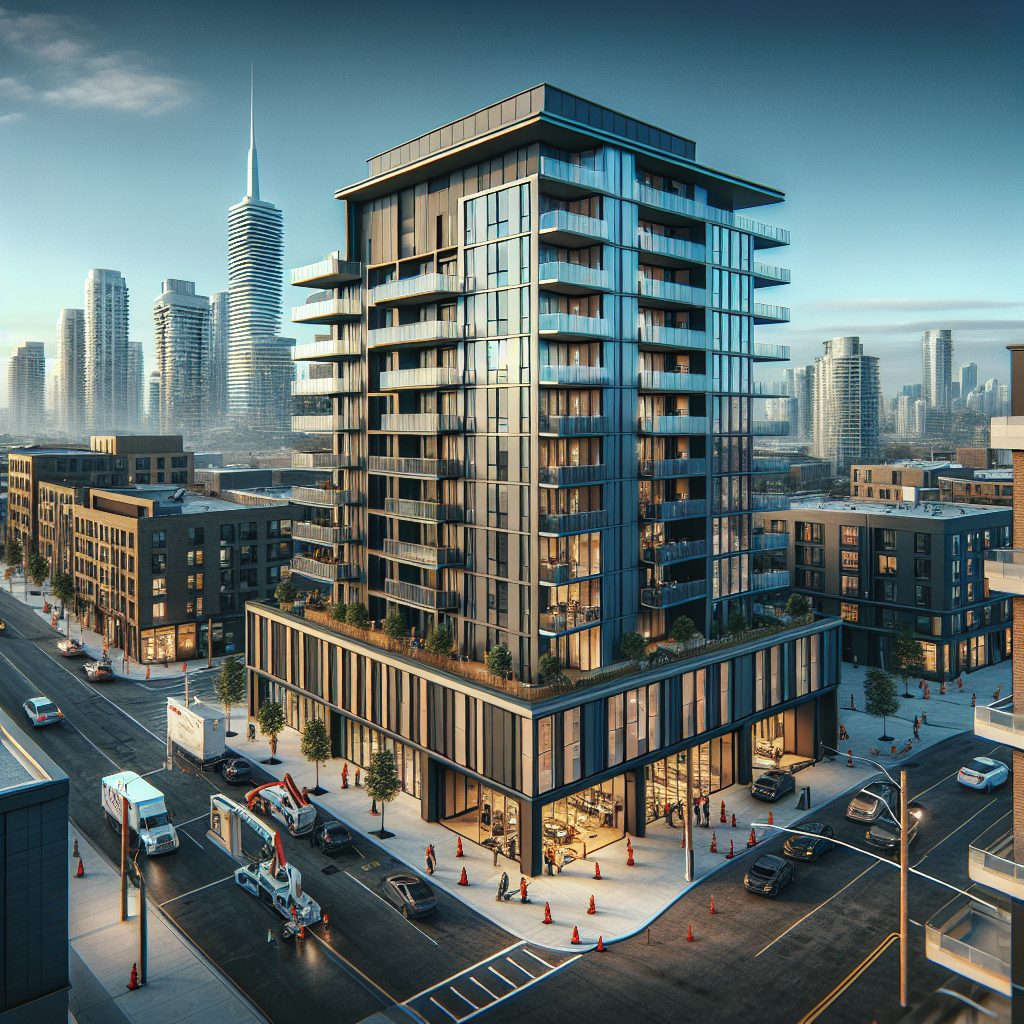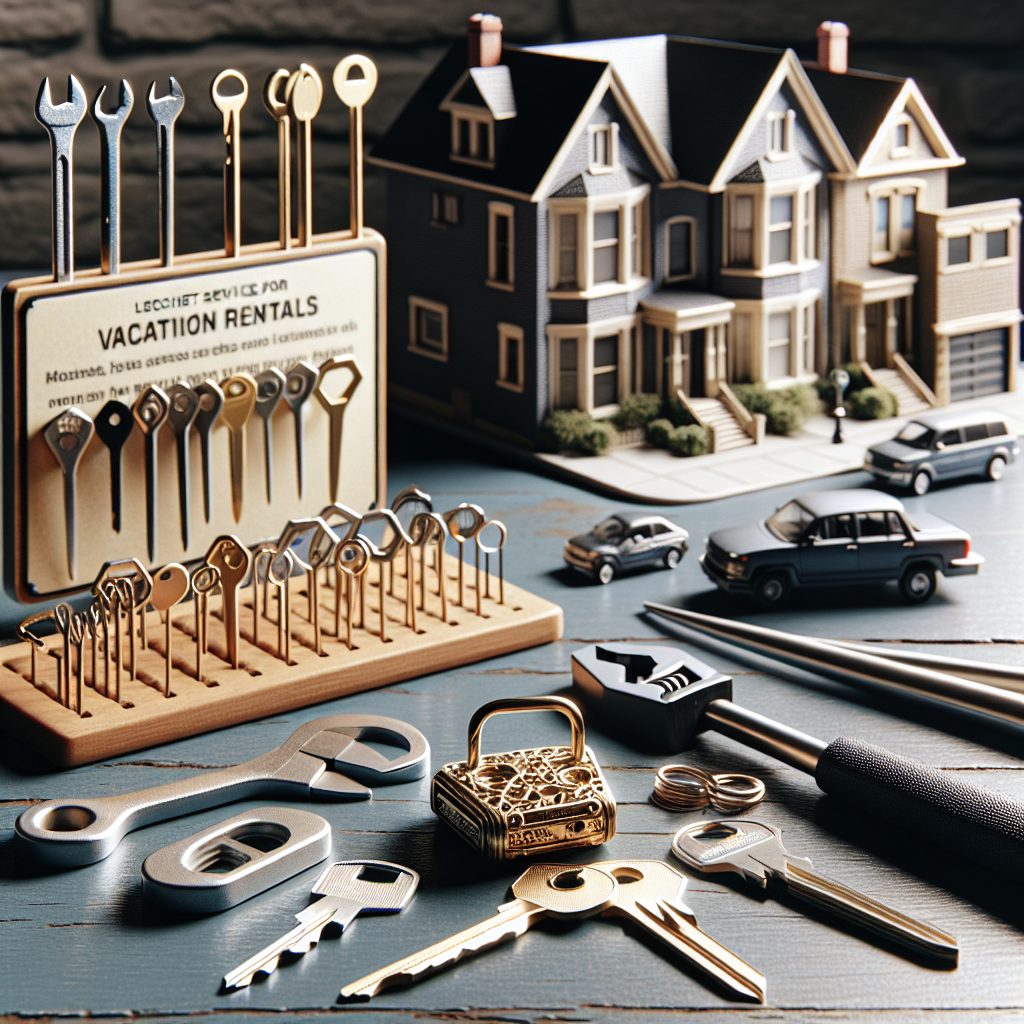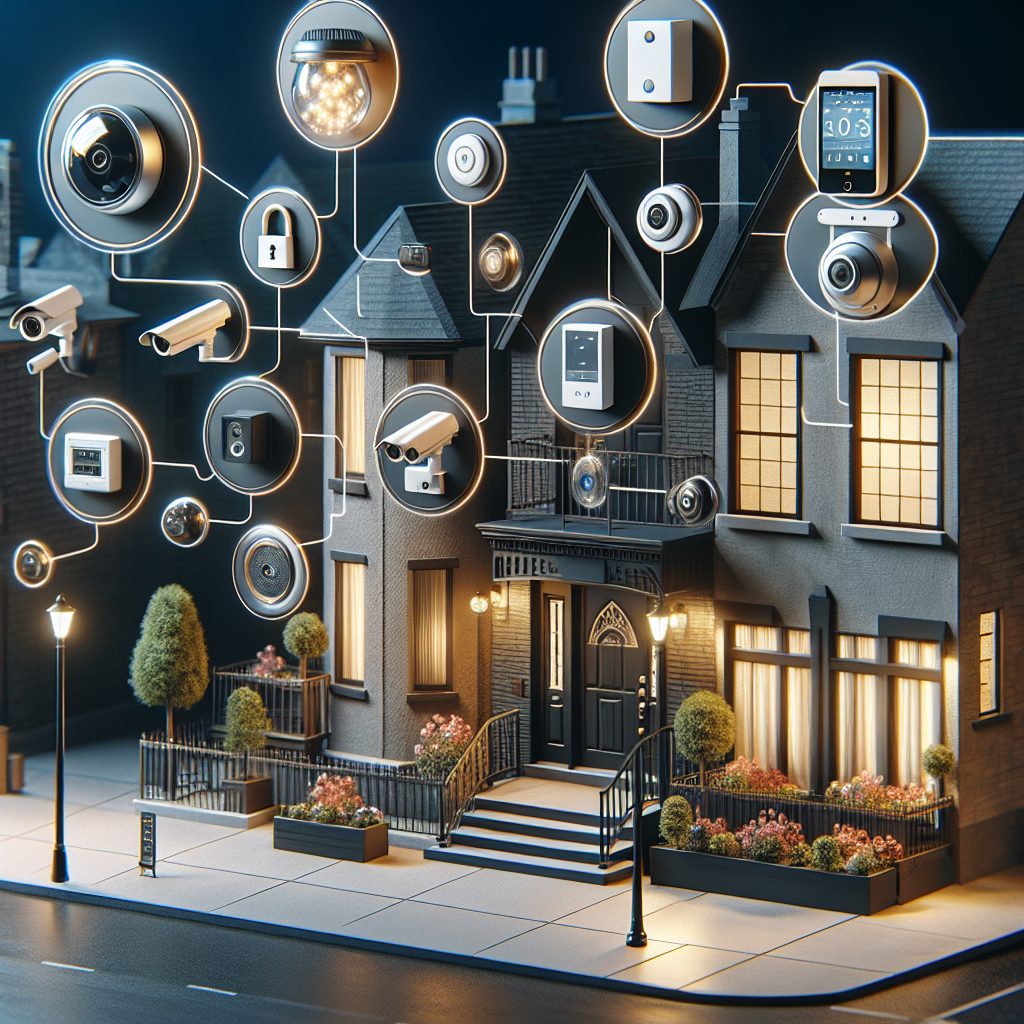New rental building lock installation in Toronto refers to the process of fitting new locks in residential rental properties throughout the city. In a bustling metropolis like Toronto, where housing options are abundant and demand is high, ensuring the security of rental units is of utmost importance. With constantly evolving technology and increasing concerns about safety, landlords and property managers are taking proactive measures to upgrade the locking systems in their buildings to keep tenants and their belongings safe.
One significant impact of new rental building lock installation is the enhanced security it provides to both tenants and landlords. Installing state-of-the-art, high-quality locks significantly reduces the risk of break-ins and unauthorized access, offering peace of mind to those residing in the rental units. Moreover, advanced lock systems can incorporate features such as keyless entry or smart locks, which provide added convenience for tenants while minimizing the possibility of lost or duplicated keys.
In the following section, we will discuss the key takeaways regarding new rental building lock installation in Toronto. We will delve into the benefits of upgrading locks, explore the different types of lock systems available, and highlight essential considerations for landlords and property managers. By the end of this article, readers will gain a comprehensive understanding of the importance of investing in quality locks for rental properties in Toronto and the various options they have to enhance the security of their buildings.
Key Takeaways
1. Toronto has implemented new regulations that require all rental buildings to have lock installation on all unit doors for increased security and tenant safety.
2. The new regulations ensure that all rental buildings provide a high level of security by having locks in place that meet specific standards, including being impossible to pick or tamper with.
3. The lock installation requirement applies to both newly constructed rental buildings and existing buildings, requiring landlords to retrofit their properties to comply with the new standards.
4. Landlords have a grace period to adhere to the new regulations, with a deadline of December 31, 2022, to install the required locks in all rental units.
5. Failure to comply with the new lock installation requirements can result in fines and penalties for landlords, emphasizing the importance of landlords acting promptly to ensure their buildings meet the necessary standards.
What is the Process for New Rental Building Lock Installation in Toronto?
1. Assessing the Building’s Locking System Needs
Before initiating the lock installation process in a new rental building in Toronto, it is crucial to assess the specific locking system requirements. This step involves evaluating the number of entry points, determining the level of security needed, and considering any additional features such as smart locks or keyless entry systems.
2. Choosing the Right Lock Types
There are various lock types available for rental building installations in Toronto. It is essential to select the most suitable locks based on factors like the building’s overall security goals, tenant preferences, and budget. Common lock types for rental properties include deadbolts, knob locks, rim locks, and mortise locks.
3. Hiring a Professional Locksmith
For a successful lock installation in a new rental building in Toronto, it is advisable to hire a professional locksmith experienced in commercial and residential properties. A skilled locksmith can provide valuable insights, recommend the appropriate lock brands, ensure proper installation, and address any security concerns.
4. Preparing for the Lock Installation
Prior to the installation process, there are certain preparations that should be made. These can include gathering all necessary lock components, such as the locks themselves, strike plates, screws, and other related hardware. It may also involve coordinating with tenants or property managers to ensure smooth access to the building units during the installation.
5. Installation Procedure
Once the preparations are complete, the locksmith will proceed with the lock installation. This typically involves removing the existing locks, preparing the door surface, fitting the new locks into place, and securing them with the appropriate screws and strike plates. The locksmith will ensure that the locks function correctly and smoothly, providing security and convenience for tenants.
6. Testing and Quality Assurance
After the installation, the locksmith will conduct thorough testing to ensure the locks are functioning as intended. This includes checking the alignment of the lock components, verifying smooth operation, and testing the keys or any additional locking features. Additionally, the locksmith will inspect the installed locks for any potential issues and address them promptly.
7. Providing Tenant Instructions and Maintenance Tips
Once the lock installation is complete, it is essential to provide clear instructions to the building’s tenants regarding the proper use and maintenance of the new locks. This may involve demonstrating how to operate the locks, sharing guidelines for key management, and offering tips for basic lock maintenance to enhance longevity and security.
What are Important Considerations for New Rental Building Lock Installation in Toronto?
- Consider the overall security requirements and goals for the rental building.
- Evaluate the specific needs of tenants and any additional features desired.
- Select the appropriate lock types based on security, durability, and tenant preferences.
- Ensure the locks meet the relevant industry standards and certifications.
- Hire an experienced and reputable locksmith familiar with rental building installations.
- Discuss any security concerns or specific requirements with the locksmith.
- Plan the lock installation process in coordination with tenants or property managers.
- Ensure all necessary lock components and hardware are readily available.
- Verify the credentials and licenses of the locksmith before hiring.
- Provide clear tenant instructions on using and maintaining the new locks.
Frequently Asked Questions
1. What is the importance of installing new locks in rental buildings?
Installing new locks in rental buildings helps enhance the security and safety of the premises. It ensures that only authorized individuals have access, reducing the risk of break-ins, theft, and vandalism.
2. Can tenants request lock changes in their rental units?
Yes, tenants have the right to request lock changes in their rental units. Landlords are obligated to provide a safe living environment, and allowing tenants to change locks can contribute to their peace of mind and overall security.
3. What types of locks are recommended for rental buildings?
For rental buildings, it is advisable to use high-quality deadbolt locks. Deadbolts provide an extra layer of security as they require significant force to break compared to standard spring latch locks.
4. How often should locks be changed in rental properties?
Ideally, locks should be changed or rekeyed between tenants to ensure the security of the new occupants. Additionally, it is recommended to change locks periodically or when there is a potential breach of security.
5. Are there any regulations or legal requirements for lock installations in rental buildings?
Yes, there may be specific regulations and legal requirements for lock installations in rental buildings depending on the jurisdiction. It is crucial for landlords to familiarize themselves with local laws to ensure compliance.
6. Can a professional locksmith assist with lock installations in rental buildings?
Absolutely! Professional locksmiths are experienced in installing and replacing locks in various settings, including rental buildings. They can offer expert advice on the most suitable locks and ensure proper installation.
7. How long does it typically take to install new locks in a rental building?
The duration of lock installations in rental buildings can vary depending on factors such as the number of units, the complexity of the locks, and the availability of locksmiths. Generally, it may take a few hours to a full day.
8. Can an existing lock system be upgraded without completely replacing it?
Yes, existing lock systems can often be upgraded without the need for complete replacement. A locksmith can assess the current locks and suggest improvements that enhance security while minimizing costs.
9. What other security measures should be considered in rental buildings?
In addition to installing new locks, it is recommended to consider other security measures such as surveillance cameras, access control systems, and adequate lighting. These measures work collectively to strengthen the security of the building.
10. How can landlords inform tenants about new lock installations?
Landlords can inform tenants about new lock installations through written notices, email communication, or by posting notifications in common areas. Clear communication is essential to ensure tenants are aware of any changes and feel secure.
Final Thoughts on New Rental Building Lock Installation in Toronto
Ensuring proper lock installations in rental buildings is crucial for the safety and security of both landlords and tenants. By investing in high-quality locks and considering additional security measures, the risk of unauthorized access and potential security breaches can be significantly minimized.
Moreover, being aware of the legal requirements and involving professional locksmiths throughout the process can ensure that lock installations are done in compliance with regulations. Prioritizing the security of rental buildings ultimately creates a sense of trust and peace of mind for all parties involved.






Recent Comments